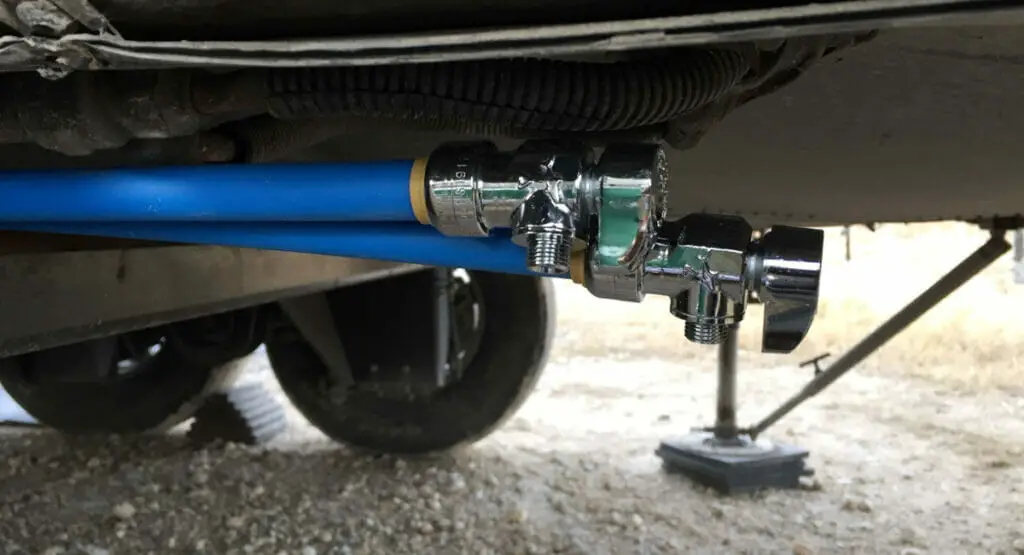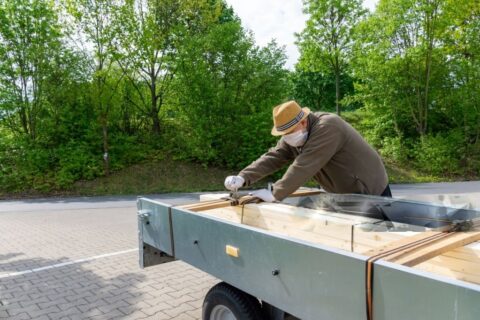RVs, or recreational vehicles, are popular among travelers who appreciate the freedom and flexibility of being able to hit the road and explore new places. Keeping the fresh water system in good working order is an essential element of RV maintenance. Nevertheless, RV owners may have fresh water tank concerns such as overflow, which may be a bothersome and sometimes expensive problem to resolve. In this post, we’ll look at some of the probable causes of an RV’s fresh water tank overflowing, as well as some measures RV owners may take to analyze and address the problem. There could be several reasons why your RV’s fresh water tank is overflowing. Here are some possible explanations:
1. Overfilling
It’s crucial to remember that the fresh water tank has a limited capacity, and overfilling it can cause water to overflow. While filling the fresh water tank, keep a constant eye on the water level and cease filling when the tank is full. Certain RVs may feature a water level indicator, while others may not. In the absence of a gauge, other means, such as listening for changes in sound or watching the flow of water, must be used to detect when the tank is full. It’s also worth noting that overfilling the fresh water tank might harm the RV’s plumbing and result in pricey repairs. As a result, it’s important to be careful and attentive while filling the fresh water tank to avoid overfilling and the difficulties that come with it.
2. Malfunctioning Float Valve
The float valve in an RV’s fresh water tank controls the flow of water into the tank and thereby regulates the water level. When the tank is full, the valve shuts off the flow of water and turns it back on when the water level decreases.
If the float valve fails, the fresh water tank may overflow. You may perform a few things to check the float valve for damage or wear and tear. Here are some things you can do:
a. Find the float valve in the fresh water tank of your RV. It is usually seen on the tank’s side.
b. Examine the float valve for apparent evidence of wear or damage, such as cracks, corrosion, or rust. If you discover any damage, it may be necessary to replace it.
c. Examine the float valve’s position. It should be free to move up and down with the tank’s water level. It may need to be adjusted or replaced if it is stuck or not moving correctly.
d. Fill the fresh water tank and observe the water level to test the float valve. If water continues to flow into the tank after it has been filled, the float valve may be broken.
e. If you believe that the float valve is causing your fresh water tank to overflow, contact a professional RV repair service right away. They can assess the issue and provide a remedy, which may involve fixing or replacing the float valve.
3. Faulty Water Pump
In an RV, a broken water pump may cause the fresh water tank to overflow. Locate the water pump in your RV and examine its electrical connections for corrosion or damage to check for any damage or obstructions. Inspect the water pump visually for any cracks, leaks, or evidence of damage. Examine the water pump and the water lines going to and from the pump for obstructions, which may cause water to back up and overflow the fresh water tank. Lastly, test the water pump by turning it on and watching the water flow. If the water flow is poor or uneven, it might be due to a faulty water pump. If you believe a broken water pump is causing your fresh water tank to overflow, contact a certified RV technician to diagnose and repair the problem.
4. Damaged Water Tank
If the fresh water tank is broken or fractured, water might leak and overflow. Examine the tank for evidence of damage.
5. Blocked Vent:
If the vent on the fresh water tank is blocked, air cannot escape when you fill the tank with water. This can cause the tank to overflow. Check the vent for any blockages.
Conclusion
If you’ve tried troubleshooting your overflowing fresh water tank but are still unable to pinpoint the source, it may be time to call in a professional RV mechanic. They have the knowledge and tools to identify the issue and propose a suitable solution.
A qualified RV technician can evaluate your fresh water tank, water pump, and other components to determine the source of the issue. They may also make any required repairs or replacements to resolve the problem and guarantee that your fresh water system is operational.
Moreover, a trained RV technician may provide helpful advice on how to properly manage your RV’s fresh water system to avoid future issues.
Overall, hiring a professional RV technician may save you time and money in the long run by ensuring that your RV’s fresh water system is functioning properly and efficiently.











